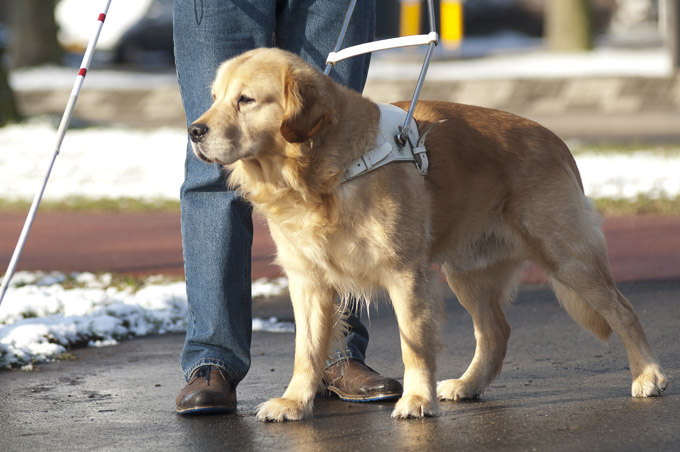Warnings about the growing problem of people passing off their pets as service dogs are increasing. Continuing to put this problem in the spotlight is a first step toward stopping this selfish and unlawful behavior.
People with medical and psychological disabilities have a legitimate need for service dogs, but the present system governing the status of service animals under the Americans with Disabilities Act (ADA) is ripe with abuse. It seems that the devil is in the details! In theory, the guidelines are strict. The ADA governs the accessibility of public places and commercial enterprises, and rules are administered by the Civil Rights Division of the Department of Justice.
Under the rules only dogs (and in a few special cases, miniature horses) qualify as service animals. Pets, even therapy pets, are not considered service animals. Most importantly, service dogs must be specially trained to perform specific services for specific disabilities.

It becomes a major problem when you understand that three different sets of federal statutes apply to the rights of individuals with disabilities to be accompanied by animals: the Americans with Disabilities Act, the Fair Housing Act, and the Air Carrier Access Act. Because of the division of responsibility, there is a bewildering array of confusing and conflicting regulations. Make no mistake: the individuals who are scamming the system know exactly what they are doing. Rationalization and excuses don’t change the basic fact that they are purposefully breaking the law and making things far more difficult, and even dangerous, for those with a genuine need for their service dog. While the apparent loopholes make this a legal morass, there’s no moral ambiguity.
Passing a pet off as a service animal is wrong.
When it comes to service animals the federal government requires only two questions to be asked and answered: Is the dog trained to perform a task for a disability? What is the task the dog has been trained to perform? A positive answer to both questions means the dog cannot be denied access, and the law as it stands does not require certificates or proof of training. Cheaters know that if they answer correctly, no further proof is required.
Trained service dogs work hard to learn their skills and act as the eyes, ears, arms or legs of their disabled handlers. They should be honored and respected for the jobs they perform. They lead, guide and protect, improving the quality of life for individuals with physical and mental challenges who entrust the dog with their lives. They are working animals with an important job to do.
Canine Companions for Independence (CCI) CEO Corey Hudson is frustrated by the growing abuse of the system and says that it’s time it is changed to crack down on service dog fraud. Hudson and CCI are now lobbying the Department of Justice for help.
Many state lawmakers are equally frustrated and proposing stricter rules, while realizing that the ADA guidelines put limits on what they can do. Some states are opting to impose substantial fines on those who are caught abusing the system.
An increasing number of people are having their pets pose as service animals to get an all access pass to places they are not allowed, while disabled people with real service dogs say that this fraud adds to the discrimination that they already often face on a daily basis.
It is nearly impossible to spot a fake service dog by appearance. If you know someone who is passing their pet off as a service dog, perhaps even bragging about how simple this scam is, the time has come to speak up. If asked, many of these people would describe themselves as law-abiding. Opening a serious conversation in a non-confrontational manner might change minds, one individual at a time.
Related Articles:
Scammers Use Fake Service Dogs





